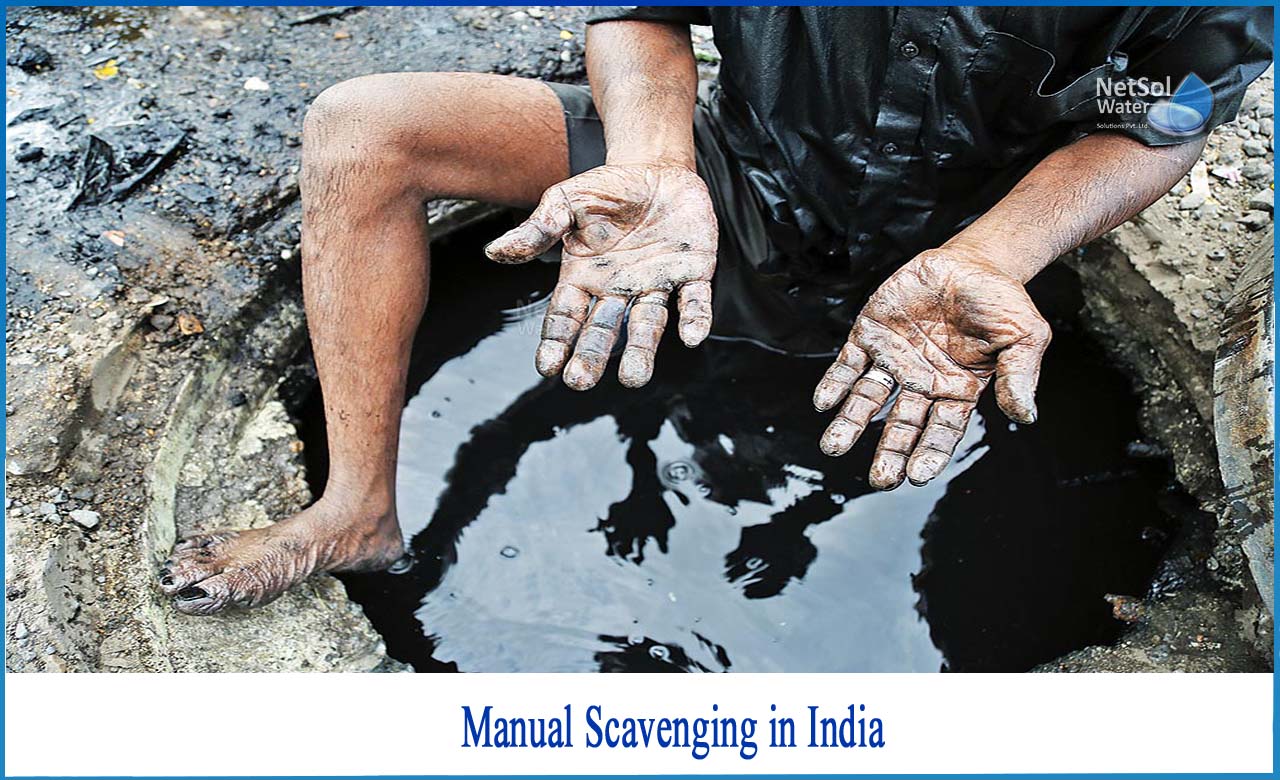Manual scavenging
Manual scavenging is an unsanitary, repulsive, and in dignifying practise in India. It has also long been a tool of caste oppression; particular castes, such as the Valmikis, have historically used it.
Why is manual scavenging such a bad idea?
The dangerous and laborious removal of fresh and untreated excreta from dry toilets and pit latrines, as defined by its definition, is a horrible practise.
How many manual scavengers are there in India?
In India, the International Labour Organization recognises three different types of manual scavenging:
1. Emptying dry latrines and streets of human waste
2. Septic tank cleaning
3. Gutter and sewer cleaning
Another type of manual scavenging is the manual removal of faeces thrown from trains on railway tracks.
Government regulation during manual scavenging
The Indian government established legislation prohibiting manual scavenging and prohibiting the employment of manual scavengers in 1993 and 2013. It even included provisions for former scavengers to be rehabilitated.However, the reality is far from ideal. The rules are still being broken. This demeaning and unsanitary practise persists unabatedly.
According to the 2011 Census, the country has roughly 2.6 million dry latrines. Human excreta is flushed in open sewers in 13,14,652 toilets, whereas human excreta is physically cleaned in 7,94,390 dry latrines. Rural areas account for 73% of such toilets, whereas urban areas account for 27%.
To make matters worse, states do not track how many manual scavengers are employed in dry toilets across their borders. According to Bezwada Wilson, winner of the Magsaysay Award, India has 1.6 lakh “safaikarmcharis” who clean dry toilets. This is despite the government's claims that the Swacch Bharat Mission has resulted in the construction of flush toilets.
The National Commission for Scheduled Castes (NCSC) ordered all state and union territory secretaries and DGs to share data on the total number of dry latrines and manual scavengers in July 2016. The number of dry latrines and manual scavengers in the data was significantly different.
Mismatch is a major discre?pancy that indicates that state governments have failed to detect manual scavengers and address their issues.
How is manual scavenging an issue for socio economic?
According to the 2015 Socio-Economic Caste Census Data, manual scavenging is still a source of income for 180657 households in India. The NCSC points out that spending on rehabilitating manual scavengers underneath the Self Employment Scheme for Rehabilitation of Manual Scavengers was $0, out of a total budget of 470.19 crore for 2015-16.
Manual scavenging is a socioeconomic as well as a health issue.
Conclusion
The caste system, which drives individuals into manual scavenging while also ostracising them for it, must be abolished. Such outdated, archaic beliefs will only stifle India's progress and prevent it from becoming the superpower it aspires to be in a fast modernising India.
On that issue, government officials' attitudes must also shift. It is not only apathy toward manual scavengers that is bad, but also falsifying numbers to make it appear that the district/village has new toilets and no “safaikarmcharis” in order to meet the Swacch Bharat Mission's goal. A better strategy for achieving the Swachh Bharat Mission's objectives would be to first recognise the problem, then engage with people, resources, and expertise to tackle the problem and assure a cleaner India.
People in India deserve a high level of living, which includes basic amenities such as flush toilets and clean washrooms. People can only contribute to national progress if they are healthy.
Netsol Water is Greater Noida-based leading water & wastewater treatment plant manufacturer. We are industry's most demanding company based on client review and work quality. We are known as best commercial RO plant manufacturers, industrial RO plant manufacturer, sewage treatment plant manufacturer, Water Softener Plant Manufacturers and effluent treatment plant manufacturers. Apart from this 24x7 customer support is our USP. Call on +91-9650608473, or write us at enquiry@netsolwater.com for any support, inquiry or product-purchase related query.



